

Data driven healthcare
Call to provide more efficient care, underpinned by UK health data
Our new white paper recommends how our health data policy can create the most clinical, societal and financial value.



Call to provide more efficient care, underpinned by UK health data
Our new white paper recommends how our health data policy can create the most clinical, societal and financial value.


Printed material that behaves like bone promises better joint replacements
Imperial startup OSSTEC has raised £1.2 million to take its system of smart bone implants into clinical trials.
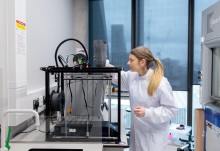

World’s first research hub for treating child blast injuries launched
The world’s first centre dedicated to studying and providing lifesaving innovations to children injured by explosive weapons has been launched.
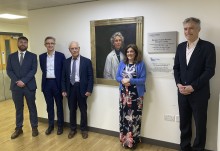

Plaque unveiled celebrating the legacy of Professor Dame Margaret Turner Warwick
Imperial welcomes the Rayne Foundation to the College to celebrate the naming of the new Centre for Fibrosing Lung Disease in her honour.


Social Care Minister visits Imperial for launch of cancer breath test study
Minister for Social Care Helen Whately MP visited the Hammersmith Campus last week to discuss Imperial’s research on diagnosing cancer.
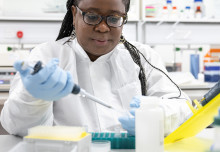

WE Invent means patent costs are no barrier for Imperial’s women entrepreneurs
Female innovators at Imperial can benefit from a dedicated fund that covers the costs of patenting an invention.


MSD partners with Imperial to access insights for better health
Pharmaceutical company MSD has partnered with Imperial to reveal insights that will aid its mission to support clinicians and save and improve lives.
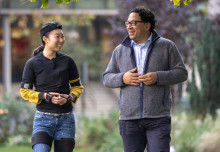

Wearable tech, AI and clinical teams join to change the face of trial monitoring
A multi-disciplinary team of researchers has developed a way to monitor the progression of movement disorders using motion capture technology and AI.
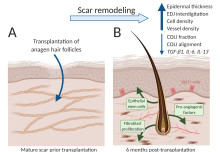

Scars mended using transplanted hair follicles in Imperial College London study
Imperial researchers have found that hair follicle transplants can promote scar rejuvenation by altering their architecture and genetic makeup.
 5
5
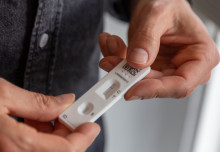

First-line defences against COVID-19 are short-lived and may explain reinfection
A new study finds that antibodies produced in the nose decline 9 months after infection, while those found in the blood last at least a year.